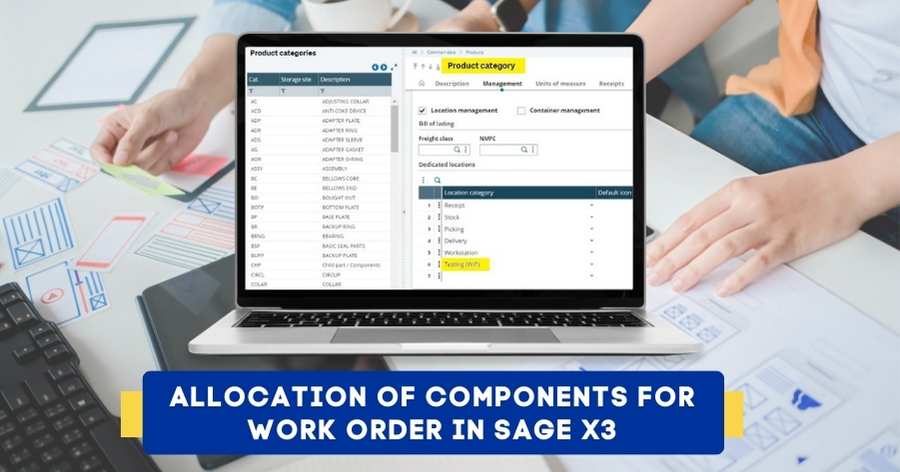What is Tire Manufacturing Software?
Tire Manufacturing Software is a specialized type of software designed to streamline and optimize various processes involved in the production of tires and delivers industry-specific features that ties together a multitude of business operations. It is a unified system that facilitates a seamless flow of information across all business aspects with a centralized database.
ERP system support various tire manufacturing business operations such as maintaining optimum inventory levels, forecasting material requirements, quality assessment of semi-finished and finished tires, meeting industry standards, facilitating production recalls, sales management, and providing better customer satisfaction.
Overview of the Tire Manufacturing Industry
India’s tire industry is the fifth largest in the world in terms of production, with revenues accounting for over Rs. 75,000 Crore (equivalent to $9.5 Billion) as of the financial year 2022. Exports from this segment accounted for over Rs. 21,000 Crore (equivalent to $2.8 Billion) as of 2022, recording an all-time high-value growth of 50% compared to the year 2021. The industry is estimated to grow at a CAGR of 6–7% in the subsequent years.
You May Also Like: Impact of Artificial Intelligence on the Automotive Industry
Challenges Faced by the Tire Manufacturing Industry
-
Currency Fluctuations
Many tire factories are involved in international trade. The depreciation of the Indian Rupee can lead to higher import costs for raw materials. They will need to pay more to buy the same amount of material as before. On the other hand, stronger Indian rupees will make their products more expensive for international buyers. Hence, they may see a significant drop in the profit margin.
-
Environmental Concerns
The tire industry is considered one of the most polluting industries in the world. The manufacturing and disposal of traditional tires release harmful pollutants into the air. Discarded traditional tires, rubber pieces, and other waste materials require additional efforts in waste management. Moreover, a significant amount of water and energy are consumed during the production process.
-
Regulatory Compliance
Tire manufacturers in India have to comply with various Government regulations for the safety of their products, customers, and the environment. This may require a significant investment in technology and constant research and development. Non-compliance with these regulations can lead to fines, penalties, or legal proceedings.
Future Trends in the Tire Manufacturing Industry
-
Eco-friendly Tires (Green Tires)
There is a growing emphasis on fuel-efficient, eco-friendly tires that have lower rolling resistance and are lighter in weight. These are also called green tires. They are designed to be more environmentally friendly than their traditional counterparts.
-
Tire Pressure Monitoring System (TPMS)
The use of TPMS technology to monitor air pressure inside pneumatic tires is gaining momentum. This critical security feature uses a pictogram display or a low-pressure indicator light to immediately alert the driver about underinflated or unsafe driving conditions. This helps prevent fatal accidents that result in the loss of human lives or serious injuries.
-
Tire Recycling Circular Economy
Many modern-day tire manufacturers are committed to a circular economy by increasing their share of renewable and recycled materials. This involves close cooperation with various stakeholders in society to promote the recycling of end-of-life tires and minimize waste and adverse impacts on the environment.
You May Also Like: What are the types of Manufacturing Processes?
Benefits of Tire Manufacturing Software
-
Purchase Requisition Management
The online procurement management system in your ERP keeps a detailed record of the raw materials, finished goods, and capital goods. Creating, tracking, verifying, and approving Purchase Orders (POs) becomes easier with an ERP. Your requisitions go through a systematic workflow. Moreover, the automated matching of supplier invoices with corresponding purchase orders provides real-time reporting and analytics to meet production goals.
-
Get a Bird’s Eye View of a Company’s Financial Data
With the best ERP software in India, you can get a bird’s-eye view of your manufacturing company’s financial data at your fingertips. It offers powerful reporting and analytical tools to quickly generate financial reports, including cash flow statements, income statements, and balance sheets. Your ERP for auto components can handle the increasing volume of financial data and complex operations while being accurate at all times. Not only does it save time, but it also reduces complexity and human errors.
-
Higher Product Quality
The inventory module in ERP helps you maintain the quality of your inventory that flows in and out. It also keeps a log of the supplier’s performance to identify reliable suppliers who deliver high-quality materials. The Lot tracking system in ERP solutions identifies the source of the defect to take timely action and avoid waste. This paves the way for improved production, inventory management, and higher customer satisfaction.
-
Make Informed Decisions
ERP implementation provides an efficient way to handle day-to-day business activities for a tire-building business. It helps make the business more agile by providing critical information and analysis at its fingertips. Business decision-makers can use various features, such as forecasting and planning, to make informed business decisions. The comparison scenarios help with testing potential impacts before making major implementations.
Conclusion
Tire manufacturing software is increasingly used by modern-day tire businesses to get a competitive edge in the highly competitive domestic and international tire production markets.
Sage X3 is a multi-country, multi-currency ERP that expedites business processes and brings efficiency to business operations. It delivers reliable and accurate information in real-time so that you have complete control over your business operations with end-to-end traceability. The customized reports and dashboards provide valuable insights that aid in solid data-backed decisions that reduce operational costs and increase productivity and profits.







